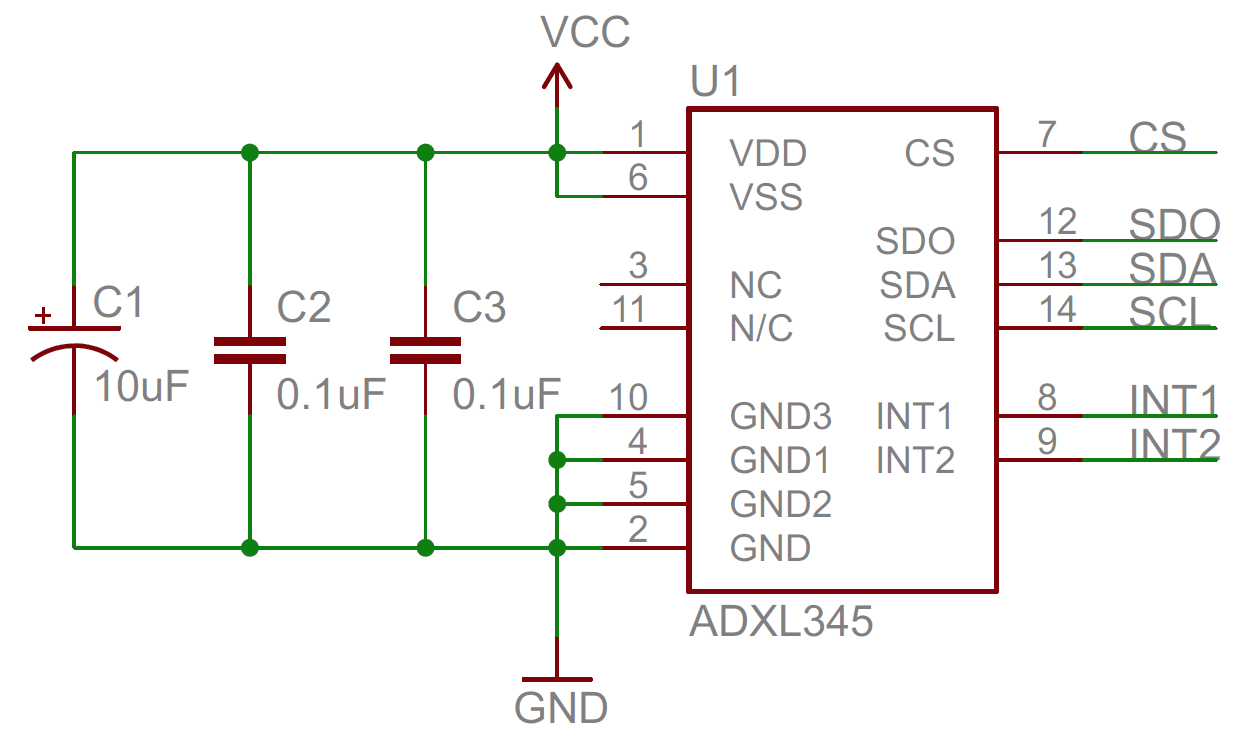...
The most simple incarnation of the bypass capacitor is a cap connected directly to the power source and to ground.
, as shown in the diagram to the left. This simple connection will allow the AC component of VCC to pass through to ground. The cap acts like a reserve of current. The charged capacitor helps to fill in any 'dips' in the voltage VCC by releasing its charge when the voltage drops. The size of the capacitor determines how big of a 'dip' it can fill. The larger the capacitor, the larger the 'dip' it can handle. A common size to use is a .1uF capacitor. You will also see .01uF as a common value. The precise value of a bypass cap isn't very important.
So, how many bypass capacitors do you really need? A good rule of thumb I like to use is each IC on my board gets its own bypass capacitor. In fact, I try to place the bypass cap so it is directly connected to the Vcc and Gnd pins. This is probably overkill, but it has always served me well in the past, so I will recommend it to you. It turns out you can even by DIP sockets that have the bypass caps built in. I suppose once you reach more than a few capacitors per square inch, you might be able to let up a bit!
Another great place for a bypass cap is on power connectors. Anytime you have a power line heading off to another board or long wire, I would recommend putting in a bypass cap. Any long length of wire is going to act like a little antenna. It will pick up electrical noise from any magnetic field. I always put a bypass cap on both ends of such lengths of wire.
The type of capacitor you use can be important. I would recommend It is recomended that you use a monolithic ceramic capacitor. They are small, cheap, and readily available. I usually use a .1uF 50Volt +-20% with .1" or .2" spacing. Again, .01uF is also acceptable. I would avoid Avoid larger voltage capacitors as they are physically too large. Electrolytic capacitors are not well suited to the role of bypass capacitors as they typically have larger capacitance values and don't respond as well to high frequency changes.
...
